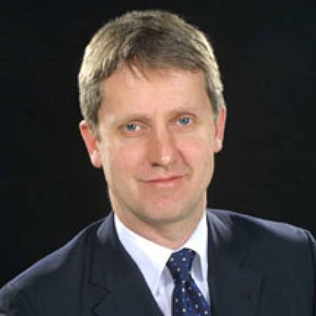
In aphasia, a person may be unable to comprehend or unable to formulate language because of damage to specific brain regions. The major causes are stroke and head trauma; prevalence is hard to determine but aphasia due to stroke is estimated to be 0.1–0.4% in the Global North. Aphasia can also be the result of brain tumors, epilepsy, autoimmune neurological diseases, brain infections, or neurodegenerative diseases.

Cognitive neuroscience is the scientific field that is concerned with the study of the biological processes and aspects that underlie cognition, with a specific focus on the neural connections in the brain which are involved in mental processes. It addresses the questions of how cognitive activities are affected or controlled by neural circuits in the brain. Cognitive neuroscience is a branch of both neuroscience and psychology, overlapping with disciplines such as behavioral neuroscience, cognitive psychology, physiological psychology and affective neuroscience. Cognitive neuroscience relies upon theories in cognitive science coupled with evidence from neurobiology, and computational modeling.

Cognitive neuropsychology is a branch of cognitive psychology that aims to understand how the structure and function of the brain relates to specific psychological processes. Cognitive psychology is the science that looks at how mental processes are responsible for the cognitive abilities to store and produce new memories, produce language, recognize people and objects, as well as our ability to reason and problem solve. Cognitive neuropsychology places a particular emphasis on studying the cognitive effects of brain injury or neurological illness with a view to inferring models of normal cognitive functioning. Evidence is based on case studies of individual brain damaged patients who show deficits in brain areas and from patients who exhibit double dissociations. Double dissociations involve two patients and two tasks. One patient is impaired at one task but normal on the other, while the other patient is normal on the first task and impaired on the other. For example, patient A would be poor at reading printed words while still being normal at understanding spoken words, while the patient B would be normal at understanding written words and be poor at understanding spoken words. Scientists can interpret this information to explain how there is a single cognitive module for word comprehension. From studies like these, researchers infer that different areas of the brain are highly specialised. Cognitive neuropsychology can be distinguished from cognitive neuroscience, which is also interested in brain-damaged patients, but is particularly focused on uncovering the neural mechanisms underlying cognitive processes.

Functional neuroimaging is the use of neuroimaging technology to measure an aspect of brain function, often with a view to understanding the relationship between activity in certain brain areas and specific mental functions. It is primarily used as a research tool in cognitive neuroscience, cognitive psychology, neuropsychology, and social neuroscience.
Neuroplasticity, also known as neural plasticity or brain plasticity, is the ability of neural networks in the brain to change through growth and reorganization. It is when the brain is rewired to function in some way that differs from how it previously functioned. These changes range from individual neuron pathways making new connections, to systematic adjustments like cortical remapping or neural oscillation. Other forms of neuroplasticity include homologous area adaptation, cross modal reassignment, map expansion, and compensatory masquerade. Examples of neuroplasticity include circuit and network changes that result from learning a new ability, information acquisition, environmental influences, practice, and psychological stress.
Neurophilosophy or philosophy of neuroscience is the interdisciplinary study of neuroscience and philosophy that explores the relevance of neuroscientific studies to the arguments traditionally categorized as philosophy of mind. The philosophy of neuroscience attempts to clarify neuroscientific methods and results using the conceptual rigor and methods of philosophy of science.
Geraint Ellis Rees is Vice-Provost of research, innovation & global engagement at University College London (UCL). Previously he served as Dean of the UCL Faculty of Life Sciences, UCL Pro-Provost, Pro-Vice-Provost (AI) and a Professor of Cognitive Neurology at University College London. He is also a Director of UCL Business, a trustee of the Alan Turing Institute, a trustee of the Francis Crick Institute and a trustee of the Guarantors of Brain.

Christopher Donald Frith FRS, FMedSci, FBA, FAAAS is a British psychologist and professor emeritus at the Wellcome Centre for Neuroimaging at University College London. He is also an affiliated research worker at the Interacting Minds Centre at Aarhus University, an honorary Research Fellow at the Institute of Philosophy and a Quondam Fellow of All Souls College, Oxford.

The Wellcome Centre for Human Neuroimaging at University College London is a world-leading interdisciplinary centre for neuroimaging research based in London, United Kingdom. Researchers at the Centre use expertise to investigate how the human brain generates behaviour, thoughts and feelings and how to use this knowledge to help patients with neurological and psychiatric disorders. Human neuroimaging allows scientists to non-invasively investigate the brain structure and functions including Action, Decision Making, Emotion, Hearing, Language, Memory, Navigation, Seeing, Self awareness, Social Behaviour and the Bayesian Brain

Jonathon Stevens "Jon Driver" was a psychologist and neuroscientist. He was a leading figure in the study of perception, selective attention and multisensory integration in the normal and damaged human brain.
Neuroscience of multilingualism is the study of multilingualism within the field of neurology. These studies include the representation of different language systems in the brain, the effects of multilingualism on the brain's structural plasticity, aphasia in multilingual individuals, and bimodal bilinguals. Neurological studies of multilingualism are carried out with functional neuroimaging, electrophysiology, and through observation of people who have suffered brain damage.

The UCL Queen Square Institute of Neurology is an institute within the Faculty of Brain Sciences of University College London (UCL) and is located in London, United Kingdom. Together with the National Hospital for Neurology and Neurosurgery, an adjacent facility with which it cooperates closely, the institute forms a major centre for teaching, training and research in neurology and allied clinical and basic neurosciences.
Karl John Friston FRS FMedSci FRSB is a British neuroscientist and theoretician at University College London. He is an authority on brain imaging and theoretical neuroscience, especially the use of physics-inspired statistical methods to model neuroimaging data and other random dynamical systems. Friston is a key architect of the free energy principle and active inference. In imaging neuroscience he is best known for statistical parametric mapping and dynamic causal modelling. In October 2022, he joined VERSES Inc, a California-based cognitive computing company focusing on artificial intelligence designed using the principles of active inference, as Chief Scientist.

Eleanor Anne Maguire is an Irish neuroscientist. Since 2007, she has been Professor of Cognitive Neuroscience at University College London where she is also a Wellcome Trust Principal Research Fellow.

Sophie Kerttu Scott is a British neuroscientist and Wellcome Trust Senior Fellow at University College London (UCL). Her research investigates the cognitive neuroscience of voices, speech and laughter particularly speech perception, speech production, vocal emotions and human communication. She also serves as director of UCL's Institute of Cognitive Neuroscience.
Richard Edward Passingham is a British neuroscientist. He is an international authority on the frontal lobe mechanisms for decision making and executive control. He is amongst the most highly cited neuroscientists.
Social cognitive neuroscience is the scientific study of the biological processes underpinning social cognition. Specifically, it uses the tools of neuroscience to study "the mental mechanisms that create, frame, regulate, and respond to our experience of the social world". Social cognitive neuroscience uses the epistemological foundations of cognitive neuroscience, and is closely related to social neuroscience. Social cognitive neuroscience employs human neuroimaging, typically using functional magnetic resonance imaging (fMRI). Human brain stimulation techniques such as transcranial magnetic stimulation and transcranial direct-current stimulation are also used. In nonhuman animals, direct electrophysiological recordings and electrical stimulation of single cells and neuronal populations are utilized for investigating lower-level social cognitive processes.
Kathryn Emma Watkins is an experimental psychologist in the Wellcome Trust centre for integrative neuroimaging at the University of Oxford and a tutorial fellow at St Anne's College, Oxford. Her research investigates the brain processes that underlie speech, language and development.
Steven L. Small is the Aage and Margareta Møller Distinguished Professor in Behavioral and Brain Sciences at the University of Texas at Dallas, and dean of its School of Behavioral and Brain Sciences. Small is a specialist in the neurobiology of language.
Heidi Johansen-Berg is a Professor of Cognitive Neuroscience and Director of the Wellcome Centre for Integrative Neuroimaging at the University of Oxford. She studies brain plasticity in the context of stroke rehabilitation and aging.








